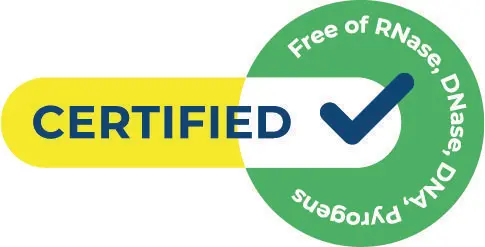Why are Laboratory Consumables Required to be DNase and RNase Free?
In the field of molecular biology, accuracy and reliability are of utmost importance. Any contamination in laboratory consumables can lead to erroneous results, which can have severe consequences for scientific research and diagnostics. One common source of contamination is the presence of DNase and RNase enzymes. These enzymes degrade DNA and RNA, respectively, and can be found in various biological matrices. To mitigate the risk of contamination and ensure accurate results, laboratory consumables, such as pipette tips, deep well plates, PCR plates, and tubes, must be DNase and RNase free.
DNase and RNase enzymes are ubiquitous and can be found in various biological sources, including the human body, plants, and microorganisms. They play essential roles in cellular processes such as DNA fragmentation, DNA repair, and RNA degradation. However, their presence in a laboratory setting can be detrimental to experiments involving DNA and RNA analysis.
Pipette tips are one of the most commonly used laboratory consumables. They are used for accurate and precise liquid handling, making them crucial for various applications such as sample preparation, DNA sequencing, and PCR. If pipette tips are not DNase and RNase free, contamination can occur during pipetting, leading to the degradation of DNA or RNA samples. This can result in false negative or inconclusive results, jeopardizing the integrity of the entire experiment.
Deep well plates are another essential laboratory consumable, particularly in high-throughput applications. They are used for sample storage, serial dilutions, and cell culture. If these plates are not DNase and RNase free, any DNA or RNA samples stored in them can become contaminated, leading to the degradation of the nucleic acids. This can compromise the accuracy of downstream applications such as PCR, qPCR, or next-generation sequencing.
Similarly, PCR plates and tubes are fundamental components in polymerase chain reaction (PCR) applications. PCR is a widely used technique for amplifying DNA sequences. If PCR plates and tubes are contaminated with DNase or RNase, the amplification process can be compromised, leading to inaccurate results and false interpretations. DNase and RNase-free PCR consumables prevent the degradation of the target DNA or RNA during the amplification process, ensuring reliable and reproducible results.
To address the issue of contamination, laboratory consumables need to be manufactured with highly controlled processes and materials that are certified to be DNase and RNase free. Companies like Suzhou Ace Biomedical Technology Co., Ltd., specialize in the production of laboratory consumables that meet these strict requirements. As a leading manufacturer in the field, Suzhou Ace Biomedical Technology Co., Ltd. prioritizes quality and reliability.
Suzhou Ace Biomedical Technology Co., Ltd. understands the critical nature of DNase and RNase contamination in laboratory consumables. Their pipette tips, deep well plates, PCR plates, and tubes are all manufactured using high-quality materials that undergo rigorous quality control measures to ensure they are DNase and RNase free.
The company employs advanced manufacturing techniques and adheres to strict quality standards to eliminate the risk of contamination, thus guaranteeing accurate and reliable results for researchers and clinicians alike. They understand that any compromise in the quality of laboratory consumables can have far-reaching consequences, not only in research but also in clinical applications where accurate diagnostics are crucial.
In conclusion, laboratory consumables such as pipette tips, deep well plates, PCR plates, and tubes must be DNase and RNase free to ensure the accuracy and reliability of molecular biology experiments. Contamination with these enzymes can lead to the degradation of DNA and RNA samples, compromising the validity of the results obtained. Companies like Suzhou Ace Biomedical Technology Co., Ltd. understand the importance of manufacturing consumables that meet these strict requirements, enabling scientists and clinicians to conduct their work with confidence and precision.
Post time: Sep-11-2023


